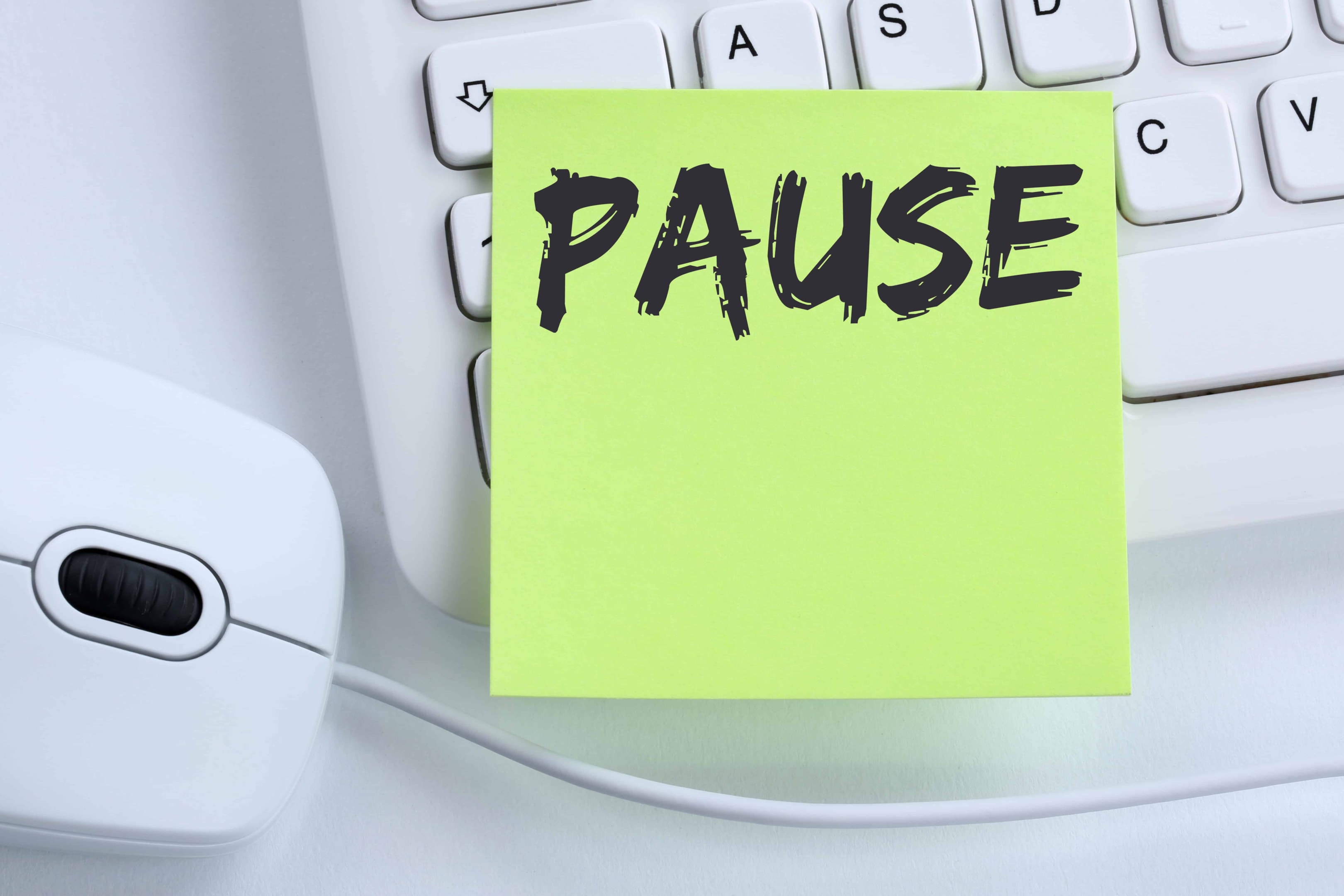Imagine being in a relationship where every major decision is made without your input. Your partner decides where to live, how to spend money, and even what to do on weekends. It’s like being a passenger in your own life, leaving you feeling invisible and unimportant, rather than an equal partner. If this scenario sounds familiar, you’re not alone. Many people struggle with partners who make decisions without consulting them, which can significantly strain the relationship.
When one partner makes all the decisions, it disrupts the balance necessary for a healthy and fulfilling relationship. This dynamic often leaves the other partner feeling unheard, undervalued, and disconnected. Over time, these hurt feelings can become resentment, leading to communication breakdowns and emotional distance.
In this blog, we’ll explore why one-sided decision-making is problematic, its impact on your relationship, and practical steps to foster more balanced and collaborative decision-making. Whether your husband makes decisions without consulting you or your wife takes charge without your input, it’s crucial to address this issue head-on for the sake of your relationship’s health and happiness.
Why One Person Ends Up Making All the Decisions

In many relationships, one partner might take on the role of the primary decision-maker, often believing it’s the most efficient way to handle things. Here are some common reasons why this happens:
Perceived Efficiency
When one person makes all the decisions, it can seem quicker and easier. Involving both partners in every decision requires more time, patience, and clear communication. The decision-maker may feel that by handling everything themselves, they can streamline the process, avoid lengthy discussions, and swiftly move forward.
Control and Responsibility
Some individuals naturally take on more control and responsibility within the relationship. This could be due to their personality, upbringing, or past experiences. They might believe they are better at making decisions or that their partner prefers it this way. This sense of control can sometimes come from wanting to protect their partner from stress or difficult choices.
Lack of Confidence in Partner’s Decision-Making
In some cases, the decision-making partner might lack confidence in their partner’s ability to make good decisions. Thiscould stem from past experiences where the partner’s choices led to unfavorable outcomes. As a result, they take on the decision-making role to avoid potential mistakes or conflicts.
Avoidance of Conflict
Decision-making can sometimes lead to disagreements and conflicts. One partner might decide to handle decisions alone to avoid these potential clashes. They might think it’s better to make a quick decision than to engage in a potentially contentious discussion.
Habit and Routine
Over time, one partner making all the decisions can become a habit. This routine might have developed gradually, with one partner stepping up during busy or stressful times and then continuing the pattern even when things have settled. It becomes the default way of operating without either partner consciously choosing it.
Imbalance of Power
In some relationships, there may be an inherent power imbalance. One partner might dominate due to their personality, financial control, or other factors. This imbalance can lead to one person making all the decisions, often without realizing its impact on their partner.
Understanding these reasons can help couples identify why this dynamic exists in their relationship. Recognizing the underlying causes is the first step towards fostering a more balanced approach to decision-making and avoiding unilateral decisions that can lead to resentment and lack of trust.
The Negative Impacts of One-Sided Decision-Making

When one partner makes all the decisions, it can have profound adverse effects on both individuals and the relationship.Here are some of the key impacts:
Feelings of Resentment and Frustration
When one partner consistently makes decisions without consulting the other, it can lead to resentment and frustration. The partner who is left out may feel their opinions and needs are being ignored, leading to a buildup of negative emotions.
Loss of Trust and Respect
Trust and respect are foundational to any healthy relationship. When decisions are made unilaterally, the partner who is excluded may start to lose faith in their partner’s ability to consider their needs and preferences. This can erode respect over time, making it challenging to maintain a strong and supportive partnership.
Communication Breakdown
Effective communication is essential for resolving conflicts and making joint decisions. However, when one partner takes on the role of the sole decision-maker, it can stifle open and honest communication. The other partner may feel less inclined to share their thoughts and feelings, leading to a communication breakdown.
Emotional Disconnection
Over time, one-sided decision-making can create an emotional divide between partners. The partner who feels excludedmay become emotionally distant, leading to a lack of intimacy and connection. This emotional disconnection can be challenging to overcome and may require significant effort to rebuild.
Inequality in the Relationship
A relationship should be a partnership of equals. When one partner makes all the decisions, it creates an imbalance of power. This inequality can affect various aspects of the relationship, from daily interactions to long-term goals and plans. It is crucial to consider each other’s respective decision circles to maintain harmony and trust.
What do you do if you’re the one making all the decisions?

If you find yourself shouldering all the decision-making responsibilities in your relationship, it’s important to recognize the strain this can place on both your partner and the overall health of your relationship. In a partnership, the decisions you make individually often affect the other person, and as a couple, your respective decision circles overlap. This means that when you handle all the choices on your own, you may inadvertently cause pain or frustration for your partner. To create a more balanced and harmonious dynamic, consider the following steps:
Acknowledge the Emotional Impact
The first step is to recognize that making all the decisions can create an imbalance in your relationship. The number of decisions made on one’s own decreases significantly in a relationship, as nearly every decision made individually has an impact on the other person. Acknowledge how much pain that you are potentially causing your partner who probably feels left out, undervalued, or frustrated. Understanding their emotions can help you approach the situation with empathy and compassion.
- Reflection Exercise: Take some time to reflect on how your partner might feel when they are not included in decisions. Consider journaling your thoughts or discussing them with a trusted friend to gain perspective.
Initiate Open Conversations
Start a heartfelt conversation with your partner about the current decision-making process. Express your desire to involve them more and ensure their voice is heard. Be open to feedback and willing to listen to their perspective without becoming defensive.
- Conversation Tips: Use “I” statements to express your feelings (e.g., “I feel that I might be making too many decisions on my own”) and invite your partner to share their feelings as well.
Invite Input and Show Appreciation
Make a conscious effort to invite your partner’s input on decisions, especially those that affect both of you. Ask for their opinions and preferences, and make it clear that their input is valued and essential. Show appreciation for their contributions to build their confidence in the process.
- Practical Step: Create a decision-making journal where both partners can write down their thoughts and ideas before discussing them together. This can help organize thoughts and ensure both voices are heard.
Share Responsibilities Thoughtfully
Consider sharing decision-making responsibilities based on each partner’s strengths, interests, and expertise. Identify areas where your partner can take the lead or where you can make decisions together. This helps distribute the responsibility more evenly and ensures both partners are engaged.
- Action Plan: Make a list of common decisions that need to be made and discuss which areas each of you feel more comfortable or interested in handling. Rotate responsibilities regularly to keep the dynamic balanced.
Be Patient and Supportive
Changing long-standing habits takes time. Be patient with yourself and your partner as you work towards a more balanced decision-making process. Encourage and support each other along the way, celebrating small victories and progress.
- Emotional Check-In: Schedule regular check-ins to discuss how the new approach works. Use these moments to address any frustrations or concerns and to reaffirm your commitment to making the process work for both of you.
Build Mutual Confidence
Help your partner build confidence in their decision-making abilities. Encourage them to take the lead on minor decisions first and gradually involve them in more significant choices. Show trust in their judgment and provide positive reinforcement.
- Practical Exercise: Start with a weekly “decision-making date” where your partner makes all the decisions for a particular activity or outing. This can help build their confidence and show that their input is valued.
Addressing the emotional and practical aspects of decision-making can create a more balanced dynamic in your relationship. This improves the decision-making process and strengthens your connection and mutual respect.
What do you do if someone else makes all the decisions?

If you feel left out of the decision-making process in your relationship, asserting your voice and ensuring your needs are considered is essential. Here are some steps you can take:
Express Your Feelings Honestly
Have an open and honest conversation with your partner about how you feel. Let them know that you want to be more involved in making decisions and that you feel undervalued when excluded. Emphasize that as your own decreases in decision-making, it can lead to friction and hurt feelings. Share your emotions candidly to help your partner understand the impact of the current dynamic.
- Emotional Sharing: Use “I feel” statements to communicate your feelings without blaming your partner (e.g., “I feel unimportant when decisions are made without me”). This approach can foster empathy and understanding.
Ask for Inclusion with Clarity
Politely but firmly ask to be included in the decision-making process. Explain that you want to share the responsibility and contribute to the choices that affect both of you. Be specific about the areas where you’d like to be more involved.
- Clear Requests: Identify particular decisions or areas where you want to be included and express your desire to participate in those (e.g., “I’d like us to decide on our weekend plans together”).
Offer Practical Solutions
Suggest specific ways to improve the decision-making process. This could include regular check-ins, dividing responsibilities, or setting rules for making decisions together. Offering practical solutions shows your commitment to making the process work for both partners.
- Solution Ideas: Propose a weekly meeting to discuss upcoming decisions or create a shared calendar where both partners can add their input on important matters.
Be Proactive and Engaged
Take the initiative to involve yourself in decisions and begin to build a new life together. Ask questions, share your opinions, and show interest in decision-making. Your proactive involvement can encourage your partner to include you more and demonstrate your commitment to participating.
- Engagement Actions: When discussing a decision, actively participate by asking questions and offering your perspective. Show that you are invested in the outcome.
Build Your Confidence Gradually
If you lack confidence in your decision-making skills, build it up. Take small steps to make decisions in less critical areas and gradually work up to more significant choices. This can help you feel more comfortable and assertive in the process.
- Confidence Exercises: Start with everyday decisions, such as planning a meal or choosing a movie. Gradually take on more complex decisions to build your confidence over time.
Seek Support and Feedback
Don’t be afraid to seek support from your partner or trusted friends. Ask for feedback on your decision-making skills and look for opportunities to improve. Support from others can boost your confidence and provide valuable insights.
- Feedback Loop: After making a decision, ask your partner for feedback on how it went and what could be improved. Use this feedback to enhance your future decision-making abilities.
Celebrate Small Wins
Recognize and celebrate your progress, no matter how small. Each step towards more balanced decision-making is a victory for your relationship. Acknowledging these wins can motivate you to continue asserting your voice.
- Celebrate Together: When you successfully make a decision together, take a moment to acknowledge it and celebrate as a couple. This reinforces positive behavior and strengthens your bond.
By addressing both the emotional and practical aspects of being more involved in decision-making, you can work towards a more balanced and collaborative approach in your relationship. This improves the decision-making process and strengthens the overall relationship by ensuring both partners feel valued and heard.
What is the impact of balanced decision-making?

Balancing decision-making in a relationship can profoundly affect both partners and the overall health of the relationship. Here’s a closer look at how achieving a more equitable approach to decision-making can positively impact your relationship:
Enhanced Trust and Respect
When both partners are involved in decision-making, it fosters a sense of mutual trust and respect. Each partner feels valued and acknowledged, which strengthens the foundation of the relationship. This shared responsibility helps build a deeper connection and reinforces the belief that both partners are equally important in the partnership.
- Trust Building: Trust grows as both partners actively participate and contribute to decisions. Feeling respected and included reduces feelings of resentment and increases overall relationship satisfaction.
Improved Communication
Balanced decision-making requires open and effective communication. As partners discuss and deliberate on decisions, they actively listen and express their needs and concerns. This communication process can enhance overall relationship dynamics and help both partners understand each other’s perspectives more deeply.
- Communication Skills: Engaging in collaborative decision-making helps develop stronger communication skills, which can translate into other areas of the relationship. Partners learn to negotiate, compromise, and articulate their thoughts more clearly.
Greater Satisfaction and Engagement
When both partners are involved in decision-making, they are more likely to feel satisfied with the outcomes and engaged in the relationship. Shared decision-making ensures that both partners have a stake in the choices being made, leading to a greater sense of ownership and satisfaction with the decisions.
- Satisfaction Levels: Research shows that couples who share decision-making responsibilities report higher levels of relationship satisfaction. Both partners feel more invested and less likely to experience feelings of exclusion or frustration.
Stronger Partnership and Teamwork
Balanced decision-making reinforces the concept of partnership and teamwork. By working together to make decisions,couples strengthen their ability to collaborate and solve problems as a team. This teamwork can translate into other aspects of the relationship, fostering a stronger, more cohesive partnership.
- Teamwork Benefits: Collaborative decision-making enhances the couple’s ability to tackle challenges together, build a sense of unity, and approach problems with a shared mindset.
Reduced Conflict and Resentment
When decision-making is balanced, and past conflicts with an ex-wife are resolved, there is less likelihood of conflict and resentment building up over time. Both partners feel heard and involved, reducing the chances of disagreements escalating into significant issues. This proactive approach to addressing potential conflicts helps maintain a more harmonious relationship.
- Conflict Resolution: Sharing decision-making responsibilities can lead to more constructive conflict resolution. Partners learn to address disagreements with a collaborative mindset rather than an aggressive one.
Increased Emotional Support
Being involved in decision-making provides each partner with emotional support and validation. When both partners contribute to decisions, they experience a sense of emotional partnership and mutual support, which strengthens the emotional bond between them.
- Emotional Connection: Feeling supported and valued through shared decision-making enhances emotional intimacy. Both partners feel that their opinions and feelings are acknowledged and respected.
In summary, a balanced approach to decision-making fosters trust improves communication and enhances overall relationship satisfaction. By working together to make decisions, couples build a stronger partnership, reduce conflict, and create a more supportive and fulfilling relationship. This positive impact extends beyond decision-making, enriching the relationship in numerous ways.
Common Pitfalls and How to Avoid Them

Balancing decision-making in a relationship can come with its own set of challenges. Here are some common pitfalls and practical tips to avoid them:
One Partner Dominates the Discussion
Pitfall: One partner may still dominate the conversation, leading to unbalanced decision-making.
Avoidance: Set clear ground rules for discussions, ensuring both partners have equal time to express their views. Use a“talking stick” or similar tool to manage turns.
Lack of Follow-Through
Pitfall: Decisions may be made together, but follow-through on actions or implementation is inconsistent.
Avoidance: Create a plan with actionable steps and deadlines. Regularly check in on progress to ensure commitments are met.
Avoiding Conflict
Pitfall: To avoid conflict, one partner may agree to decisions they don’t fully support, leading to dissatisfaction, especially in matters like child support.
Avoidance: Encourage open and honest communication. Address disagreements constructively and work towards compromises that respect both partners’ needs.
Assuming Understanding
Pitfall: Assuming that your partner understands your needs or preferences without discussing them can lead to misalignment.
Avoidance: Be explicit about your needs and expectations. Regularly revisit and clarify your preferences to ensure mutual understanding.
Overloading with Decisions
Pitfall: Trying to make all decisions at once can be overwhelming and counterproductive.
Avoidance: Prioritize decisions and tackle them in manageable chunks. Focus on high-impact decisions first and gradually address smaller ones.
By being aware of these common pitfalls and implementing strategies to avoid them, couples can maintain a balanced and effective decision-making process.
Conclusion
Balancing decision-making in a relationship is vital to fostering a healthy, collaborative partnership. Whether you’re the one making all the decisions or feeling left out, taking steps to ensure both partners are equally involved can lead to more vital trust, improved communication, and greater satisfaction.
By recognizing and addressing the emotional and practical aspects of decision-making, you can create a more equitable dynamic that values both partners’ input and contributions. Embrace open conversations, share responsibilities, and support each other through the process.
Remember, a balanced approach to decision-making not only enhances the immediate relationship dynamics but alsobuilds a foundation for long-term harmony and mutual respect. Take proactive steps today to ensure that both voices are heard and valued, paving the way for a more fulfilling and equitable partnership.












